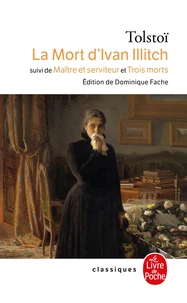Leo Tolstoy, a renowned Russian writer and philosopher, created a diverse collection of literary works that encompassed a wide range of themes and genres. Some of his notable contributions include "Fables for Children, " "Stories for Children, " "Natural Science Stories, " "Popular Education, " "Decembrists, " and "Moral Tales". Each of these works reflects Tolstoy's commitment to exploring moral, ethical, and social concepts through engaging storytelling.
"Fables for Children" : Leo Tolstoy's "Fables for Children" is a collection of short narratives that convey moral lessons through the interactions of anthropomorphic animals. Drawing inspiration from Aesop's fables, Tolstoy's fables explore virtues, vices, and human behavior, making them accessible and instructive for young readers. "Stories for Children" : Tolstoy's "Stories for Children" offers a variety of engaging tales tailored to young audiences.
These stories often feature relatable characters and situations, addressing themes of kindness, empathy, and personal growth. Through imaginative narratives, Tolstoy encourages children to contemplate essential life values. "Natural Science Stories" : In "Natural Science Stories, " Tolstoy blends storytelling with scientific exploration. Through these narratives, he introduces young readers to the wonders of the natural world, fostering a sense of curiosity and appreciation for the environment.
"Popular Education" : Tolstoy's commitment to education is evident in his work on "Popular Education". By simplifying complex subjects and presenting them in an accessible manner, he aimed to empower individuals, including children, with knowledge and critical thinking skills. "Decembrists" : Tolstoy's exploration of the "Decembrist" movement delves into historical events and societal shifts. The Decembrists were a group of Russian intellectuals and military officers who sought political reforms in the early 19th century.
Tolstoy's writings shed light on their ideals and struggles. "Moral Tales" : Tolstoy's "Moral Tales" exemplify his dedication to ethical contemplation and spiritual growth. Through stories that often feature ordinary individuals facing moral dilemmas, he prompts readers to consider the choices they make and the impact of their actions on themselves and others. Overall, Leo Tolstoy's contributions to literature extend far beyond his renowned novels.
His works for children, popular education, and moral exploration showcase his commitment to using storytelling as a means to inspire reflection, encourage ethical behavior, and foster a deeper understanding of the human experience.
Leo Tolstoy, a renowned Russian writer and philosopher, created a diverse collection of literary works that encompassed a wide range of themes and genres. Some of his notable contributions include "Fables for Children, " "Stories for Children, " "Natural Science Stories, " "Popular Education, " "Decembrists, " and "Moral Tales". Each of these works reflects Tolstoy's commitment to exploring moral, ethical, and social concepts through engaging storytelling.
"Fables for Children" : Leo Tolstoy's "Fables for Children" is a collection of short narratives that convey moral lessons through the interactions of anthropomorphic animals. Drawing inspiration from Aesop's fables, Tolstoy's fables explore virtues, vices, and human behavior, making them accessible and instructive for young readers. "Stories for Children" : Tolstoy's "Stories for Children" offers a variety of engaging tales tailored to young audiences.
These stories often feature relatable characters and situations, addressing themes of kindness, empathy, and personal growth. Through imaginative narratives, Tolstoy encourages children to contemplate essential life values. "Natural Science Stories" : In "Natural Science Stories, " Tolstoy blends storytelling with scientific exploration. Through these narratives, he introduces young readers to the wonders of the natural world, fostering a sense of curiosity and appreciation for the environment.
"Popular Education" : Tolstoy's commitment to education is evident in his work on "Popular Education". By simplifying complex subjects and presenting them in an accessible manner, he aimed to empower individuals, including children, with knowledge and critical thinking skills. "Decembrists" : Tolstoy's exploration of the "Decembrist" movement delves into historical events and societal shifts. The Decembrists were a group of Russian intellectuals and military officers who sought political reforms in the early 19th century.
Tolstoy's writings shed light on their ideals and struggles. "Moral Tales" : Tolstoy's "Moral Tales" exemplify his dedication to ethical contemplation and spiritual growth. Through stories that often feature ordinary individuals facing moral dilemmas, he prompts readers to consider the choices they make and the impact of their actions on themselves and others. Overall, Leo Tolstoy's contributions to literature extend far beyond his renowned novels.
His works for children, popular education, and moral exploration showcase his commitment to using storytelling as a means to inspire reflection, encourage ethical behavior, and foster a deeper understanding of the human experience.






















